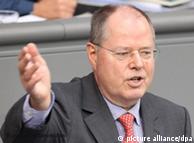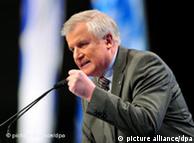(U.S. Economy Tipping into Recession
Early last week, ECRI notified clients that the U.S. economy is indeed tipping into a new recession. And there’s nothing that policy makers can do to head it off.ECRI’s recession call isn’t based on just one or two leading indexes, but on dozens of specialized leading indexes, including the U.S. Long Leading Index, which was the first to turn down – before the Arab Spring and Japanese earthquake – to be followed by downturns in the Weekly Leading Index and other shorter-leading indexes. In fact, the most reliable forward-looking indicators are now collectively behaving as they did on the cusp of full-blown recessions, not “soft landings.”
Last year, amid the double-dip hysteria, we definitively ruled out an imminent recession based on leading indexes that began to turn up before QE2 was announced. Today, the key is that cyclical weakness is spreading widely from economic indicator to indicator in a telltale recessionary fashion.
Why should ECRI’s recession call be heeded? Perhaps because, as The Economist has noted, we’ve correctly called three recessions without any false alarms in-between. In contrast, most of those who’ve accurately predicted a recession or two have also been guilty of crying wolf – in 2010, 2005, 2003, 1998, 1995, or 1987.
A new recession isn’t simply a statistical event. It’s a vicious cycle that, once started, must run its course. Under certain circumstances, a drop in sales, for instance, lowers production, which results in declining employment and income, which in turn weakens sales further, all the while spreading like wildfire from industry to industry, region to region, and indicator to indicator. That’s what a recession is all about.
But how can we have a new recession just a couple of years after the last one officially ended? Isn’t this too short for an economic expansion?
More than three years ago, before the Lehman debacle, we were already warning of a longstanding pattern of slowing growth: at least since the 1970s, the pace of U.S. growth – especially in GDP and jobs – has been stair-stepping down in successive economic expansions. We expected this pattern to persist in the new economic expansion after the recession ended, and it certainly did. We also pointed out – months before the recession ended – that because the “Great Moderation” of business cycles (from about 1985 to 2007) was now history, the resulting combination of higher cyclical volatility and lower trend growth would virtually dictate an era of more frequent recessions.
So it comes as no surprise to us that, with the latest expansion only a couple of years old, we’re already facing a new recession. Actually, such short expansions are hardly unheard of. From 1799 to 1929, nearly 90% of U.S. expansions lasted three years or less, as did two of the three expansions between 1970 and 1981. In other words, such short expansions are unusual only with respect to recent decades.
It’s important to understand that recession doesn’t mean a bad economy – we’ve had that for years now. It means an economy that keeps worsening, because it’s locked into a vicious cycle. It means that the jobless rate, already above 9%, will go much higher, and the federal budget deficit, already above a trillion dollars, will soar.
Here’s what ECRI’s recession call really says: if you think this is a bad economy, you haven’t seen anything yet. And that has profound implications for both Main Street and Wall Street.
http://www.businesscycle.com/reports_indexes/reportsummarydetails/1091
The U.S. is headed back into recession. That’s the word from the widely respected Economic Cycle Research Institute, which uses economic indicators to put together leading indexes.
On its Web site, ECRI said the U.S. economy is “indeed tipping into a new recession. And there’s nothing that policy makers can do to head it off.” (Take that, Federal Reserve Chairman Ben Bernanke and President Barack Obama.)
The forecasting firm relies on dozens of specialized leading indexes to support the warning “If you think this is a bad economy, you haven’t seen anything yet.”
Consumers, however, aren’t so ready to throw in the towel. They expect some small ray of sunshine to peek through the gathering dark clouds.
Within Friday’s Thomson Reuters/University of Michigan consumer-sentiment survey, the index covering six-month expectations rose to 49.4 at the end of September from a preliminary reading of 47.0, while the current-sentiment index edged up only slightly.
The question is whether the slightly better outlook is based on positive trends consumers are experiencing now — or just wishful thinking. The Michigan survey suggests households may be viewing economic weakness as the new norm.
“When specifically asked how they expected the unemployment rate to change, 89% expected the unemployment rate to remain unchanged at its current high level or to increase during the year ahead,” the report says.
Households as a whole fell behind in August. Nominal personal income fell 0.1% last month as job growth and pay raises stalled. When prices and taxes are included, real disposable income dropped 0.3% in August following a 0.2% drop in July.
So far in the third quarter, real consumer spending is growing at a 1.4% annual rate. That’s up from second quarter’s 0.7%, but it could hardly be described as strong.
Clearly, the U.S. and global economies are at risk. The two key uncertainties are the protracted debate over the euro-zone sovereign debt problem and future U.S. job growth.
If either of those risks end with a positive outcome for growth (meaning an orderly resolution to debt or an acceleration in hiring), then the U.S. will avert a downturn. Until either occurs, the warning for ECRI remains on the table.
http://blogs.wsj.com/economics/2011/09/30/ecri-recession-call-you-havent-seen-anything-yet
_______________________________________
γιατί κανείς δε λέει η κωλο-λέξη coupling?
το γράφω και το ξαναγράφω για να γίνει κατανοητή η αιτία που συγκεκριμένη ορολογία χρησιμοποιείται από τους διαμορφωτές κοινής γνώμης: δεν είναι για να τους ακούς, καλύτερα να σκέφτεσαι μόνος σου, καλύτερα να αντιστρέφεις ότι διαβάζεις


 Πιέσεις έως το -2% δέχεται ο δείκτης των τραπεζών, ενώ με απώλειες διαπραγματεύεται το σύνολο σχεδόν των τίτλων στον FTSE20, με εξαίρεση τις μετοχές των Marfin Popular Bank και ΟΠΑΠ που ενισχύονται περί του 2,9%.
Πιέσεις έως το -2% δέχεται ο δείκτης των τραπεζών, ενώ με απώλειες διαπραγματεύεται το σύνολο σχεδόν των τίτλων στον FTSE20, με εξαίρεση τις μετοχές των Marfin Popular Bank και ΟΠΑΠ που ενισχύονται περί του 2,9%. 







